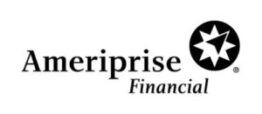
Brian Patrick Murphy a registered representative associated with Signator Investors from July 2015 through July 2016, and with MetLife Securities, Inc. from December 2006 through December 2014, conducting business under the name “Murphy Financial Advisors” in Moorestown, New Jersey, was arrested January 13, 2017 and was charged with stealing $890,000 from a customer thought he was investing in a mutual fund.
Murphy, who lives in Hainesport, New Jersey was charged with Theft by Deception, Misapplication of Entrusted Property (2nd degree), Computer Criminal Activity, Failure to File New Jersey Tax Returns, Filing of Fraudulent New Jersey Tax Returns and Failure to Pay New Jersey Taxes.
According to the Burlington County Prosecutor’s Office, instead of investing the money Murphy used the money to pay for personal and business expenses, including expenses at a local country club, a private school, established retail organizations, lending institutions, an automobile dealer and an attorney.
To conceal his theft, Murphy provided the customer with fictitious financial statements and a link to a bogus web page that he created in an attempt to satisfy the client’s demand for information.
However, what makes this case interesting is that on July 7, 2016, during Murphy’s association with Signator, a customer complaint relating to conduct that supposedly occured while Murphy was associated with MetLife, was received by MetLife.
This appears to be the same customer from whom Murphy is alleged to have stolen the $890,000, because, at least according to Public Disclosure Records, it states that “Customer alleged that [Murphy] created a bogus website in efforts to defraud and customer did not authorize the withdrawals in a variable annuity commencing on or about July 2010.”
To be clear, in July 2010, Murphy was associated with MetLife and not Signator.
But a few days later on July 12, 2016, Signator decided to terminate Murphy. Again, at least according to Public Disclosure, Signator only told regulators that Murphy was “terminated for admitting to conducting what appears to be an unapproved outside business activity.” Certainly by July 12, 2016, one can only imagine whether Signator knew, or at least had reason to believe that Murphy was at least accused of defrauding the customer and taking approximately $890,000 from the customer’s annuity. Nonetheless, Signatore told regulators that Murphy was terminated for an “unapproved outside business activity.” To which “unapproved outside business activity” does Signator’s termination filing reference, Public Disclosure offers no clue.
However, in a letter dated Feburary 23, 2017, Joshua N. Cook, Esquire, Senior Counsel and Assistant Vice President of John Hanconk Financial Servies, who owns Signator Investors, Inc., tells us that it was MetLife, and not Signator that “reported” the matter to “FINRA,” and that it was MetLife and not Signator “that received the customer complaint relating to the alleged theft.”
Three Months Later
More than three months later, in September 2016, the Financial Industry Regulatory Authority (“FINRA”) decided to investigate the circumstances surrounding Murphy’s termination for cause and of course his “unapproved outside business activities.” However, Murphy decides that he is not going to cooperate with FINRA, and accordingly, instead of being expelled by FINRA for stealing, or the conversion of customer funds, on October 27, 2016, Murphy is “suspended” for the failure to cooperate.
In most cases where a broker suspected of wrong doing fails to cooperate with a FINRA investigation, the broker is barred pursuant to FINRA Rule 8210. FINRA generally issues a Disciplinary Action stating generally as to why the broker was being investigated in the first place, the broker’s responsibility under Rule 8210 to cooperate in the investigation, and a final bar or expulsion, which FINRA publishes in its Monthly Notice to Members and on FINRA Disciplinary Actions Online.
Here, however, FINRA did not bring a Disciplinary Action against Murphy for failure to comply with Rule 8210 or offer any hint to the investment public as to why Murphy was being terminated. Instead, FINRA only issued a private “Letter” to Murphy that he was suspended. These private “Letters” are not published in FINRA’s Monthly Notice to Members and on FINRA Disciplinary Actions Online. As a result, the investing public has no information concerning the underlying reasons Murphy was terminated. Based upon experience, it is my bet is that it was the Philadelphia District Office of FINRA which issued the “letter” rather than a formal complaint.
In any event, customers who may have had their funds misappropriated by Murphy may have a claim against Murphy’s employer for his conduct.
Courts and securities arbitration panels, in identical circumstances, have long held brokerage firms responsible for the conduct of their registered representatives in “selling away” cases based upon the broker-dealer’s failure to supervise. See, e.g., Hunt v. Miller, 908 F.2d 1210 (4th Cir. 1990); Harrison v. Dean Witter Reynolds, Inc., 974 F.2d 873 (7th Cir. 1992)(firm liable for agent’s selling away activities); Hollinger v. Titan Capital Corp., 914 F.2d 1564 (9th Cir. 1990)(same); State Security Insurance Co. v. Burgos, 583 N.E.2d 547, 557 (Ill. 1991)(liability for firm where broker acted with apparent authority); Salmon v. New England Securities Corp., FINRA Arb. No. 01-06935 ($1.4 million award against member for associated persons “selling away” third party notes); Sleight v. Centaurus Financial, FINRA Arb. No. 10-00536; Brezden v. Associated Securities Corp., FINRA Arb. No. 07-03054 (reasoned award against member for failure to supervise agent’s selling away activties); Chandler v. FSC Corporation, NASD Arb. No. 05-0443, (reasoned award against member for failure to supervise agent’s unauthorized selling away); Battle v. Northeast Securities, Inc., NASD Arb. No. 06-04110, (same)(reasoned award); Dobison v. Jospehthal, Lyons & Ross, Inc., NASD Arbitration No. 96-00963 (arbitration award against brokerage firm for broker’s selling away of unregistered notes and warrants). Securities regulators have also taken the same approach and routinely hold broker-dealers responsible for the “failure to supervise,” when their representatives engage in this outside activity. In Re DBCC (No. 5) v. Charles E. French, Complaint No. 5940026, May 18, 1995 (sanctions against member for selling away activity of broker); Siriani v. United States Securities & Exchange Commission, 677 F.2d 1284 (9th Cir. 1982); Stoiber v. Securities & Exchange Commission, 161 F.3d 745 (D.C. Cir. 1998).
The information contained herein has been obtained from reliable sources however may not be accurate and is not guaranteed by us. Readers are encouraged to undertake their own independent investigation and evaluation of the relevant facts. All claims and allegations are subject to adjudication, decisions may be subject to appeal, and no inference is intended, nor should any inference be made from any information contained herein from any source.
This posting and the information on our website is for general information purposes only. This content should be not considered legal advice, and any responses, comments, e-mails, other communications do not form any attorney client relationship. Attorney Advertisement. See Important Disclaimer
Guiliano Law Group
Our practice is limited to the representation of investors. We accept representation on a contingent fee basis, meaning there is no cost to you unless we make a recovery for you. There is never any charge for a consultation or an evaluation of your claim. For more information, contact us at (877) SEC-ATTY.
For more information concerning common claims against stockbrokers and investment professionals, please visit us at securitiesarbitrations.com
To learn more about FINRA Securities Arbitration, and the legal process, please visit us at securitiesarbitrations.com








